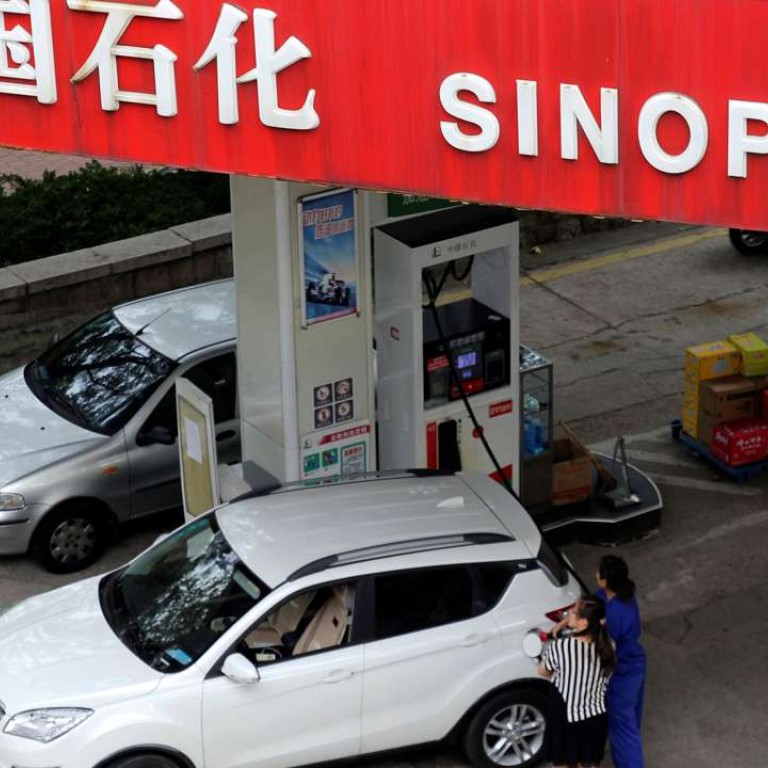
Hong Kong market closes down while China stocks enter bull territory, up 20pc since January
Chinese stocks have entered bull market territory thanks to positive economic data with the Shanghai Composite Index climbing more than 20 per cent since January, but the positive sentiment didn’t stretch to Hong Kong markets which closed lower on Friday despite US stocks hitting record highs overnight.
The Hang Seng Index finished the day down 1.35 per cent or 308.02 points to 22,531.09, while the Hang Seng China Enterprises Index dropped 1.18 per cent or 112.48 points to 9,433.37.
The Shanghai Composite Index has been climbing for five consecutive weeks – its longest stretch of gains since May 2015, according to Bloomberg.
Chinese markets have been driven up by positive sentiment on the back of positive economic data and the upcoming launch of the Shenzhen-Hong Kong stock connect which is due to begin later this month, Gordon Tsui Luen-on, Hantec Group international finance director, told the Post.
But Hong Kong’s markets were dragged down on Friday by the surprise election of Donald Trump as US president, which created uncertainty over policy changes, he said.
Chinese banks were mostly lower as new data showed that the ratio of non-performing loans rose by the end of the third quarter. The Industrial and Commercial Bank of China fell 1.29 per cent to HK$4.60 while the Bank of China slipped 1.16 per cent to HK$3.42.
Oil companies were the worst performers in morning trade after crude prices fell, with PetroChina down 1.52 per cent to HK$5.19 and Sinopec falling 1.81 per cent to HK$5.42.
Technology companies traded down after their US counterparts closed lower overnight. Tencent Holdings dropped 3.94 per cent to HK$200 and China Mobile sunk 3.27 per cent to a three month low of HK$84.25.
Despite losses in other sectors, metals were up, with Jiangxi Copper hitting a 52-week high for the second day in a row, up 8.54 per cent to HK$12.46.
We are bullish on sectors including cement and construction materials, clean energy, consumer, environmental protection, infrastructure and internet
“Although the US markets responded positively [on Thursday] the [election] surprise should result in deeper adjustments in Hong Kong and market sentiment should turn risk-averse in the short term,” said Gary Ching, analyst at Guotai Junan International in Hong Kong.
“We maintain our previous point of view that the Hong Kong market has reached a periodic high.
“We are bullish on sectors including cement and construction materials, clean energy, consumer, environmental protection, infrastructure and internet.”
On the mainland, the Shanghai Composite rose 0.78 per cent to 3,196.04 on Friday while the CSI 300, which tracks large caps listed in Shanghai and Shenzhen, rose 0.79 per cent to 3,417.22.
The Shenzhen Component Index clawed back its earlier losses and managed to close up 0.52 per cent at 10,878.14, while the Nasdaq-style ChiNext moved up 0.18 per cent to 2,147.11.
The People’s Bank of China cut the reference rate of the yuan against the US dollar by 230 basis points to a new record low of 6.8115. The currency is allowed to trade 2 per cent either side of the fixing rate. It is the first time since 2010 that the reference rate has been fixed below the psychologically important level of 6.8 against the greenback.
In Asian trading on Friday, Tokyo’s Nikkei 225 gained 0.18 per cent to 17,374.79, South Korea’s Kospi was down 0.91 per cent, while the Sydney All Ordinaries rose 0.70 per cent.
Overnight, the Dow Jones Industrial Average advanced 1.2 per cent to close at an all-time high of 18,808. The S&P 500 rose 0.2 per cent to close at 2,167. The gains were led by the banking sector which surged to levels not seen since the 2008 financial crisis, buoyed by hopes that Donald Trump will relax financial regulation by repealing the 2010 Dodd-Frank Financial Reform Act opposed by banks.
In contrast, the Nasdaq Composite lost 0.8 per cent to close at 5,208, weighed down by a slide in technology companies, with Apple, Google, Microsoft and nearly every other major tech stock in negative territory.
Oil prices settled more than 1 per cent lower in New York on Thursday as markets recovered from the shock of Trump’s election victory and focused on oversupply concerns again.
Hong Kong-listed companies with American Depository Receipts (ADRs) traded in the US were mostly down overnight.
Sinopec’s ADR dropped 2 per cent to close at HK$5.48 after conversion into Hong Kong’s local currency, compared to HK$5.52 at the close in Hong Kong. China Mobile lost 1.3 per cent to close at HK$86.20, lower than HK$87.10 in the city.

